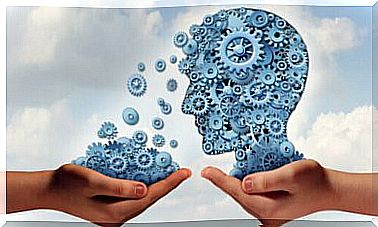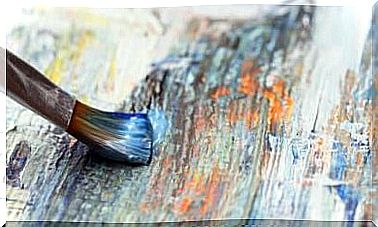Why Are Many Smart People Insecure?

They tend to be more thoughtful, meticulous and indecisive in their daily lives, but why are many smart people insecure about their own abilities and when making decisions?
Those profiles that are more arrogant and characterized by excessive self-worth are safe by nature because they do not assess the consequences of their actions, nor measure the effect of their words. They also don’t care about the harm they can do to other people.
It is often said that “there is no deeper happiness than that which derives from ignorance.” Certainly, we all agree with this idea, because we have already encountered, on some occasion, this essence so characteristic of human stupidity where a person acts with complete emotional and rational negligence, without being aware of the implications of certain behaviors.
However, and despite the fact that most of us know how to recognize the “ignorant”, the one who acts with remarkable pride, vanity and arrogance, a question often arises: why do they continue to have so much power in our more habitual surroundings? Historian Carlo Maria Cipolla said that sometimes we underestimate the large number of stupid people in the world, but to this statement we should add something else… Why has stupidity reached such high levels of influence in our society?
Psychologists and sociologists say that there is a curious aspect associated with this type of behavior profile. Less intelligent people tend to show high security, are more impetuous, more “noisier” and have the ability to influence others by this type of characteristic.
Intelligent people, on the other hand, are often characterized by notable insecurity, slow response, reflection, and even personal discretion. All of these attributes have no impact. Furthermore, we live in a world where insecurity continues to be seen as a negative trait.

Many smart people are insecure and devalue themselves
We continue to have a misconception about smart people, and especially those with a very high intellectual quotient (IQ). We see them as competent men and women, capable of always making the right decisions, or being highly effective in their daily tasks, responsibilities and obligations.
However, there is a detail that is usually present on many occasions: intelligent people often suffer from social anxiety. They rarely feel completely integrated in a specific context: school, university, work, etc. As the psychiatrist and doctor of neuroscience Dean Burnett explains to us, the profile characterized by high intelligence tends to be constantly devalued.
This is what is known as the “imposter syndrome”, a disorder in which a person minimizes his or her personal achievements and abilities until it gradually undermines their self-esteem and self-confidence. Obviously we cannot generalize, as there will be people with a high IQ who show high confidence and who will have scaled success with constancy and psychological effectiveness.
However, the pattern cited above is often quite common: intellectually brilliant people often have a deeper perception of reality, a reality that doesn’t always seem easy to assimilate, nor is it pleasant, let alone trustworthy.

Is insecurity really such a negative attribute?
We must admit: self-confidence attracts and inspires us. We like people who are able to decide quickly, show confidence and a quick reaction capacity in every circumstance. However… is it really right and even desirable to be always so “sure” of ourselves?
The answer would be “yes and no”. The key is in balance. To quote neuroscientist Dean Burnett again, it is worth talking here about one of his best-known books: “The idiot brain”. He explains that generally the most naive or ignorant people tend to show the highest level of self-confidence. They are profiles incapable of recognizing when something is wrong or of applying analytical and reflective thinking to assess, in advance, the effect of certain decisions, actions or comments.
However, this is where the strange and disturbing comes in, the “idiot personality” tends to have greater social success. Directors, senior officials or politicians who demonstrate impetuosity, confidence and firmness in their decisions often have what many consider to be “leadership skills.” Taking this on is a real danger, because sometimes we put our future in the hands of people unable to appreciate the consequences of their actions.

Productive insecurity
The insecurity that holds and immobilizes is not useful. However, the insecurity that indicates something like “stop, be cautious and think before deciding” can be of great help as long as it helps to make a decision and not to block yourself indefinitely.
Smart people usually have great difficulties when it comes to controlling this insecurity because, as we mentioned, they have low self-esteem in addition to some of these characteristics:
- They overanalyze each event, happening, word said, gesture or attitude.
- They exhibit a “growing” type of thinking. That is, from one idea they pass to another and then to another, until they are eternally abstracted in mental states with no way out.
- They are very logical people and need that “everything fits”, that everything makes sense. But life sometimes demands that we accept it as it is, with its irrationalities, chaos and oddities.
Therefore, and to ensure that insecurity does not leave them isolated in the immobility of their sophisticated minds, it is necessary that they learn to tolerate certain uncertainties, the imperfection of human behavior, as well as the illogic of many events in this world.
In addition, it is vital that their intelligence moves from the imminently “rational” frontier to emotional intelligence, where they no longer devalue themselves or feel like a strange being, alien to a reality that, despite not believing, needs them more than never in order to defeat the “virus of human stupidity”.
Images courtesy of Francesca Dafne.









